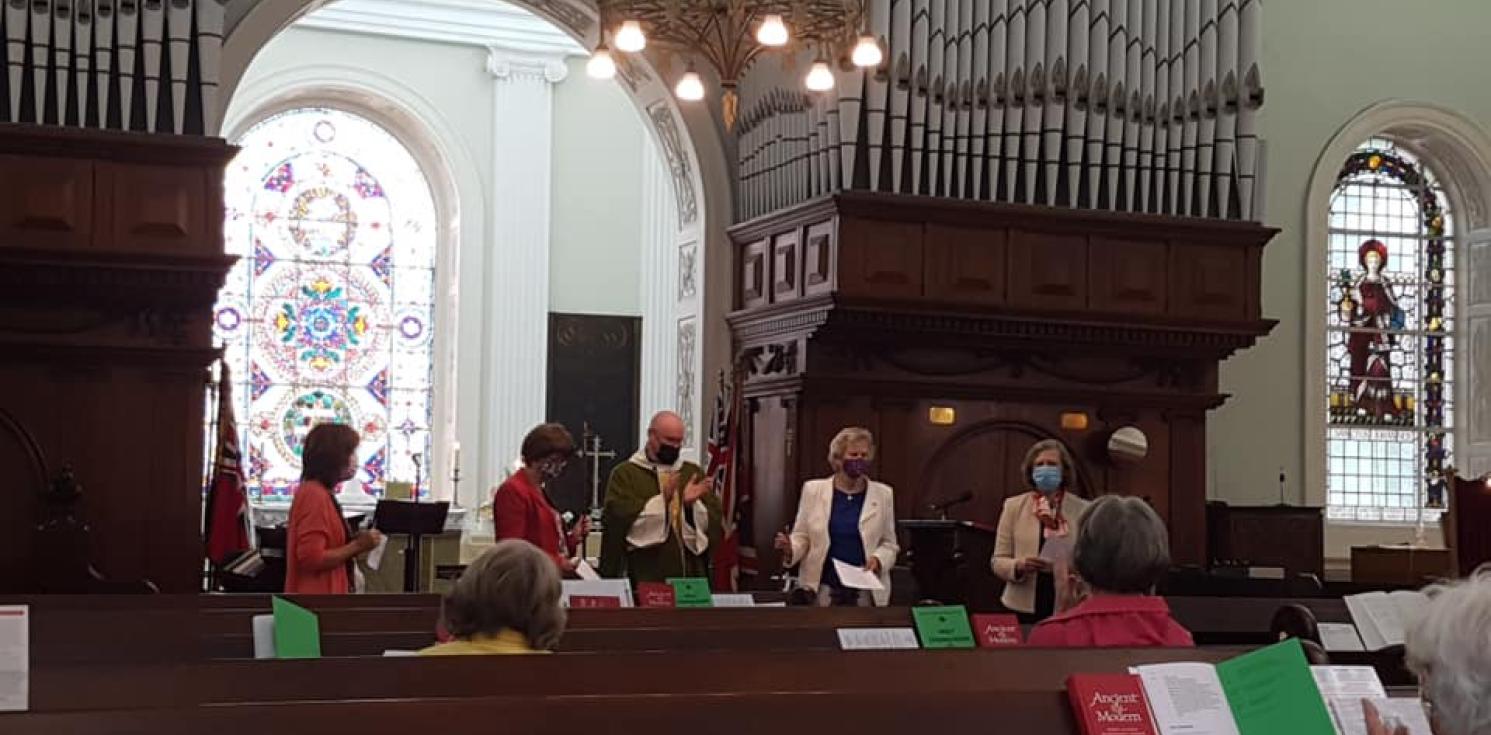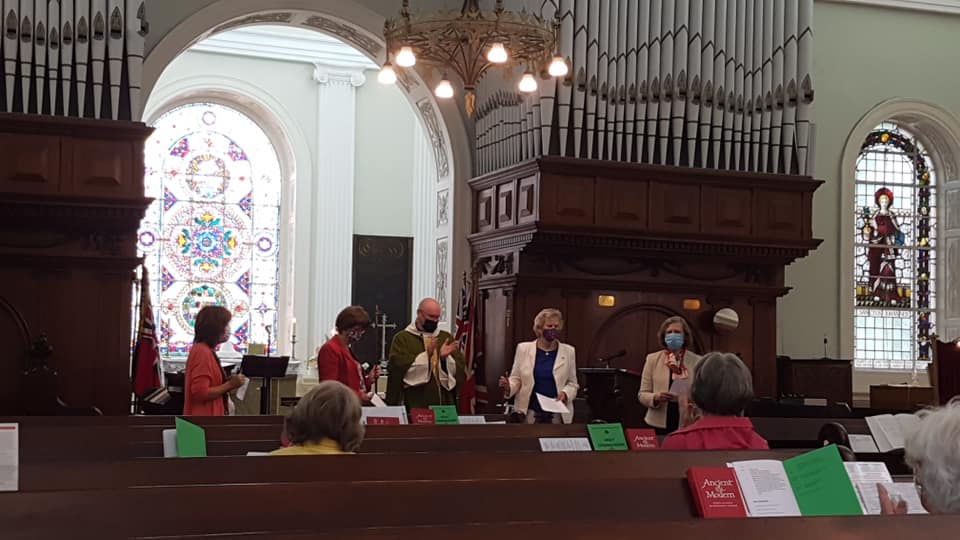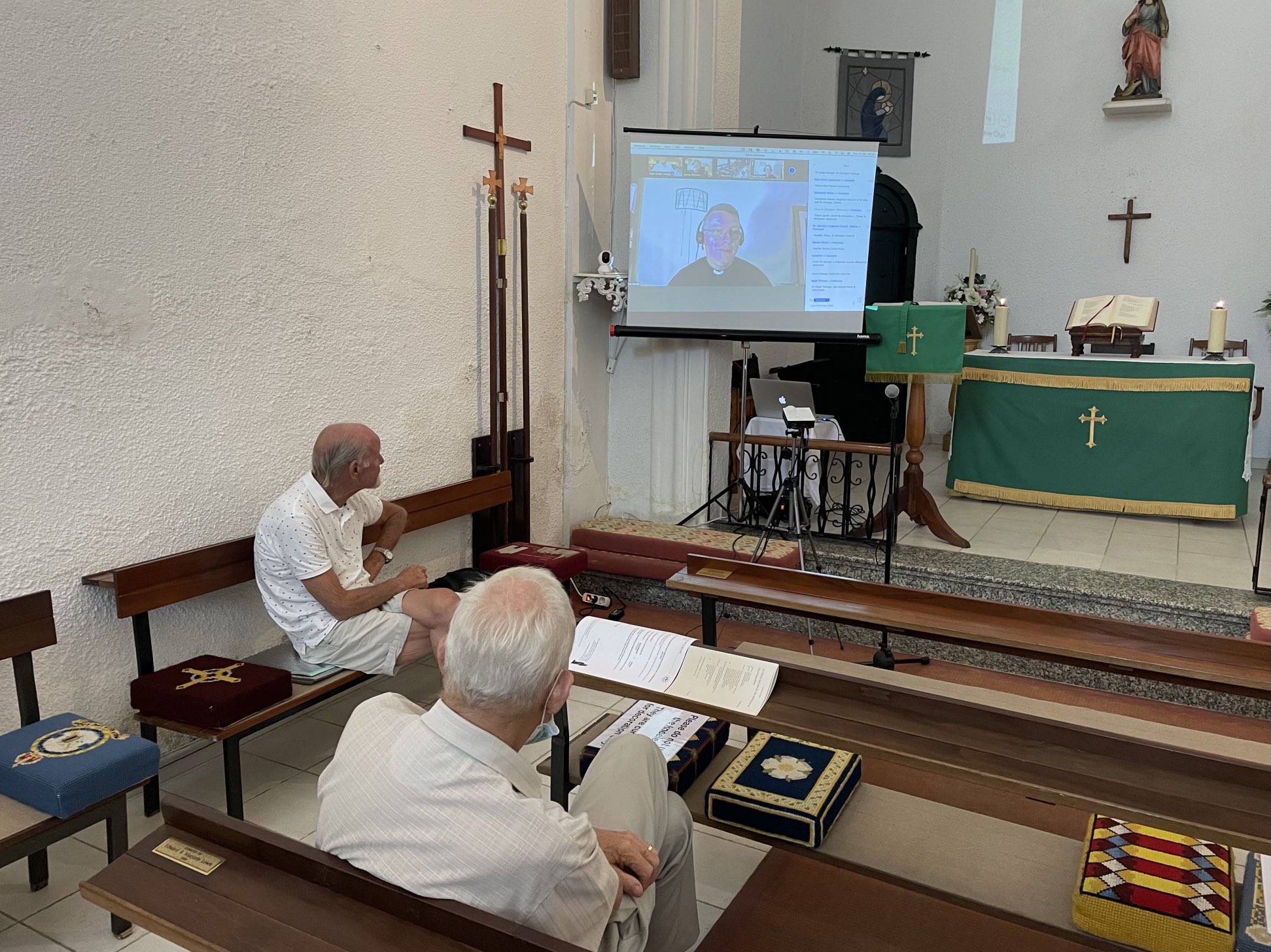Services of the Admissions of Churchwardens

Pictured above: St James Anglican Church, Porto
As a new venture this year, services of the Admissions of Churchwardens were held by the Archdeaconry of Italy & Malta and the Archdeaconry of Gibraltar over three days in the middle of June.
By Archdeacon David Waller
As a new venture this year, services of the Admissions of Churchwardens were held by the Archdeaconry of Italy & Malta and the Archdeaconry of Gibraltar over three days in the middle of June. We elect our Church Wardens at our annual meetings. Church Wardens are then admitted to office by the Archdeacon, on behalf of the Bishop. This is because they are Bishop’s Officers and the service links a Warden’s two responsibilities – to the Chaplaincy and the Diocese.
For the virtual Gibraltar meeting, forty-four people took part, with slightly fewer at the Zoom gathering for Italy & Malta. Clergy accompanied their Wardens and were there to bear witness to, and support the Wardens as they made their promises.

In each case, the Archdeacon offered an address called the ´Archdeacon’s Charge´, outlining the sorts of positive working relationships that a Church Warden takes part in during their time in office.
There then followed a short presentation on a Warden’s duties as set out in the Canons and then some time for questions and discussion. ´Old hands´ were able to encourage those new to the post and a good conversation took place.
During that same week, training was offered across both Archdeaconries or Chaplaincy Council officers – Safeguarding, Secretaries, Treasurers and Electoral Roll Officers. We listened to presentations made by those already experienced in these roles and then took part in ´open forum´ discussions. At popular request we have agreed to follow these up with a further set of sessions in six months’ time.

Pictured above: Santa Margarita, the Anglican Church in Menorca
It was good for people with similar duties and passions to meet across these two archdeaconries, to compare experience and be encouraged that they were not alone in the roles that they served in their chaplaincies.


